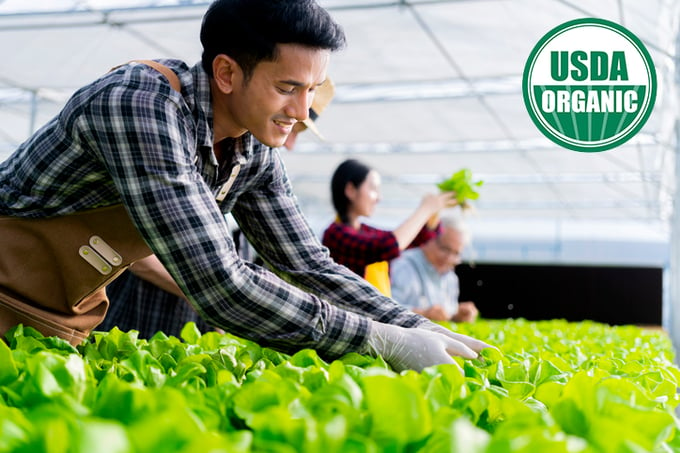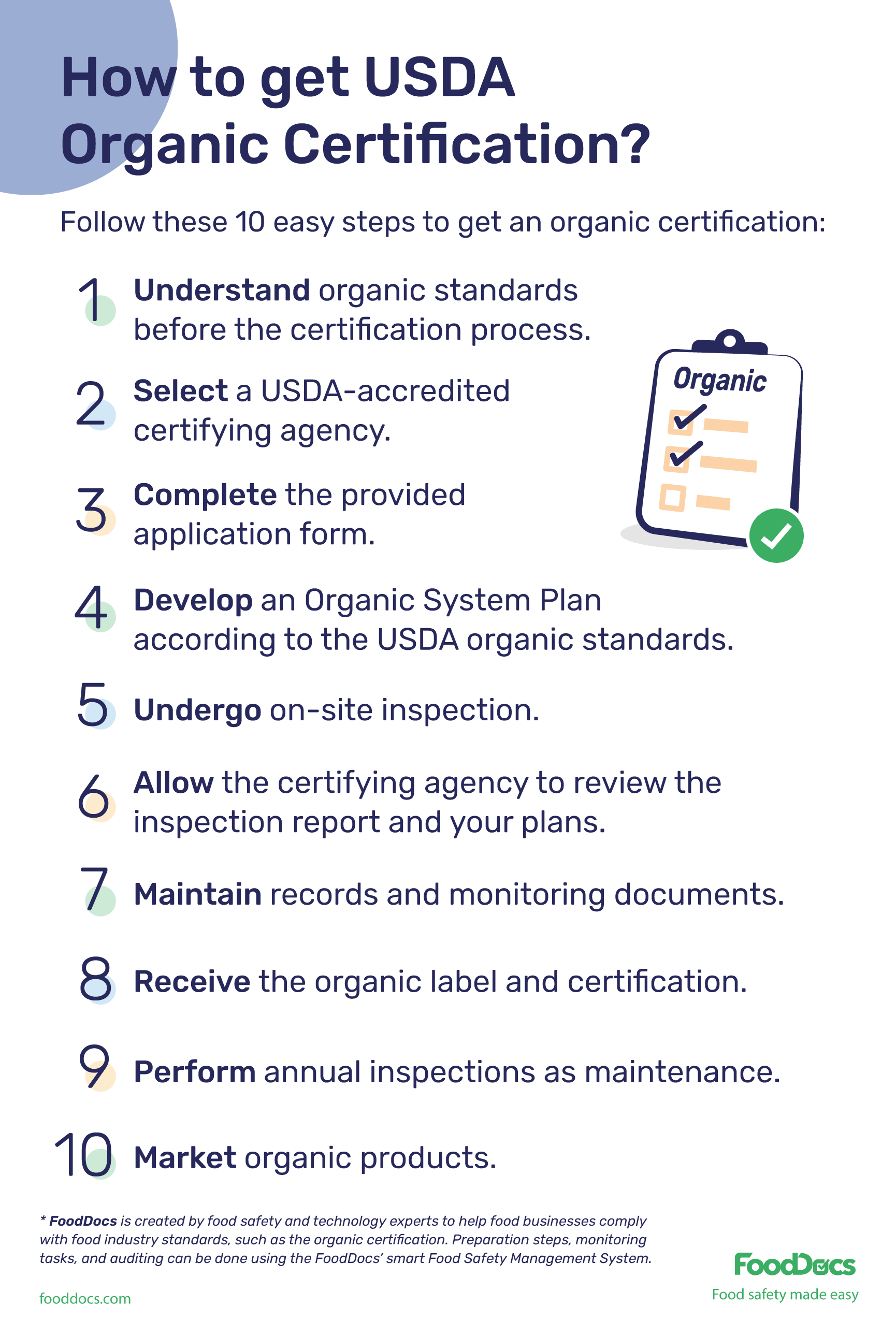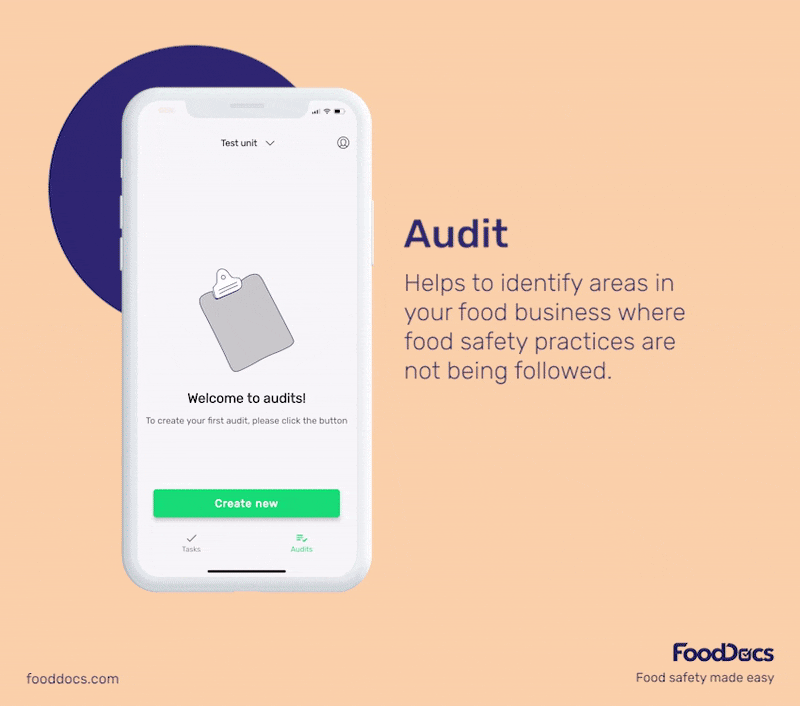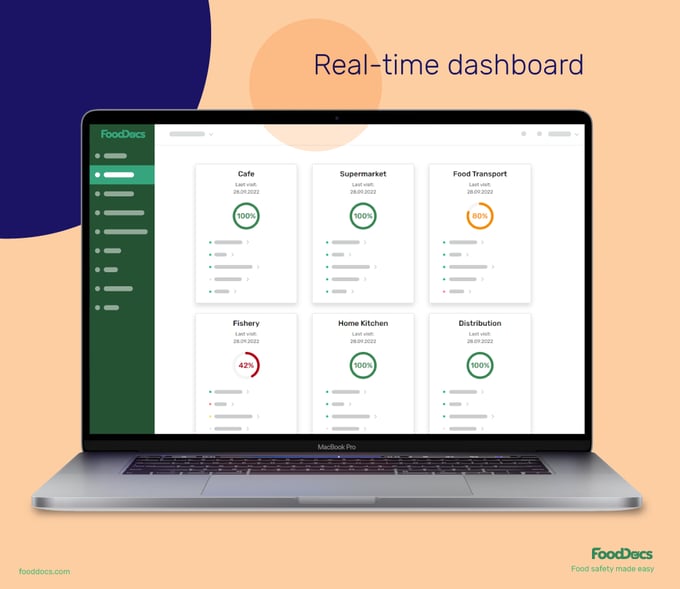Mastering Restaurant Sanitizing: Best Practices for Kitchens and Dining Areas
Master restaurant sanitizing with clear steps for kitchens and dining areas. Learn methods, checklists, and procedures to keep your team safe and...
Organic certification, together with food safety, are two critical aspects of the modern food industry, each with its distinct focus and objectives. Organic certification primarily concerns sustainable and environmentally responsible food production, emphasizing practices that reduce synthetic chemical use and promote soil health.
While indirectly related to managing food safety, organic certification touches on controlling hazards and promotes food safety through natural processes.
Organic food certification is essential for ensuring the integrity of organic products, protecting consumer interests, and promoting environmentally sustainable and health-conscious agricultural practices.
WHAT WE'LL COVER:
Organic food refers to any agricultural commodities, such as meat, crops, and dairy products, grown, processed, and handled using organic practices. Organic foods can also refer to products made with 95% organic ingredients as their main components.
The idea of organic labeling aims to communicate to consumers that a product is produced or made up of foods produced under conditions with very minimal to no use of chemicals.
This means that no synthetic pesticides and artificial fertilizers were used to grow the products, thereby emphasizing the sustainability and environmental friendliness of the production process.
Organic food is typically grown without the use of genetic engineering and often involves practices that promote soil health, biodiversity, and the treatment of animals.
Organic certification is a process in the food industry wherein agricultural products, including crops and livestock, are evaluated to meet standards for organic farming management practices.
Third-party organizations or government branches develop certification standards to ensure products are organically grown, handled, and processed. The certification also verifies if the products are environmentally friendly, sustainable, and healthy for consumers.
The organic certification process is typically voluntary but is necessary for products to be labeled "organic" and sold in most countries.
It is a required process for a certified producer to label their products as organic.
The certification process involves an in-depth evaluation of the growing, processing, and handling procedures of the production company. As such, a comprehensive monitoring program is required to provide all the necessary information efficiently and in an organized manner.
Use FoodDocs' smart Food Safety Management System that can generate a comprehensive monitoring system fit for your business. With our smart software, you can intuitively record all your operations while staying in complete control of your product's movements across your production supply chain. 
An organic food label is a specific label or logo attached to organic food products to indicate that they have been certified as organic by a recognized certifying body.
The organic food label is designed to help customers make more informed choices when purchasing foods, thereby boosting customer confidence in your brand.
This information and statements can often be seen in a product's principal display panel.
In the United States, for example, the USDA (United States Department of Agriculture) has established the National Organic Program (NOP), which regulates the standards for organic certification and provides guidelines for using the USDA Organic seal on organic products.
![]()
Official USDA organic logo
Overall, the main purpose of the organic food label is for informational purposes. It aims to inform customers that a product has undergone strict evaluation, ensuring the lack of synthetic chemicals in it.
As consumers are becoming more concerned with health issues and more conscious of what they eat, the importance of organic farming has become more important. Having a certified organic label has a strong positive impact on consumers' decisions when purchasing food products.
The term "USDA Organic" means that the United States Department of Agriculture has evaluated a food product. This label indicates that ingredients or finished products meet the standards established by the USDA National Organic Program.
The USDA Organic label is a critical indicator that shows that a product has been processed in compliance with strict organic standards. Especially in today's health-conscious society, this type of information is becoming increasingly essential.
FoodDocs can help producers monitor and produce traceability information to make the USDA Organic label certification more efficient. Using our intuitive Food Safety Management System, producers and other food businesses can automatically get monitoring tasks that can help record essential production information. These monitoring tools can be further customized according to your business specifics.
The main authorizing organization that issues the organic label in the US is the USDA. To help them conduct evaluations, the organization accredits several providers of organic certification processes for agricultural products.
These organizations are responsible for inspecting and verifying that farms and food producers meet the USDA's NOP standards.

Note that this is not an exhaustive list and that there is a wide selection of certifiers accredited by the USDA. When seeking organic certification, producers and processors can choose from these certifiers based on their location, specific needs, and preferences.
Obtaining USDA organic certification is a tough process that involves several steps. Despite this, the USDA has provided a 5-step program to help food producers get certified efficiently.
Step 1: Develop an organic system plan. This plan describes the entire process of food production. It explains how the business operates, product information, hazard control, and other operations related to organic production.
Step 2. Implement the organic system plan and have it reviewed. This step involves selecting the most appropriate certifying agent for your food business.
Step 3. Receive inspection or audit. This step is when the certifying agent conducts an on-site or farm inspection of the food business. The auditing scope will vary depending on the nature of your business (e.g., livestock production and organic crop production inspection would be significantly different).
Step 4. Have the reports certified by an agent. After the inspection, a certifying agent will review the reports and analyze whether the established hazard controls and organic system plan are comprehensive enough to guarantee an organic label.
Step 5. Receive a certification decision. After reviewing the plan and operations, the certifying agent will issue an organic certificate to your food business once proven complaint. The certification process is a continuous system that will require regular updating.
It's essential to work closely with your chosen certifying agency throughout the certification process, as they will provide guidance, conduct additional inspections, and help you navigate the complexities of organic certification. The process can take time, but it allows you to sell your products as USDA Organic, meeting the demand for organic and sustainable products in the marketplace.
A great way to speed up the certification process is to have all the monitoring documents ready for inspection. The best way to do this is to use FoodDocs' smart Food Safety Management System. With our smart software, your food business can record all compliance information to prove that you are operating under the standards for organic production.
Our system also allows food handlers to attach documents in monitoring tasks to prove that the received ingredients are organic.
Organic food certification guarantees that the particular organization's supply chain practices ethical production according to organic regulations and is presented to the customer clearly.
Here are some key reasons why organic food certification is important:
The organic food certification process is one of the many government programs that aim to promote better food production for a healthier nation. In addition to emphasized information, the certification process helps food businesses standardize their operations and minimize potentially hazardous practices from food production.
Attaining organic food certification involves a structured process of evaluating food practices that may vary from one location to another. While the USDA has provided a general 5-step procedure for preparation, there are other, more specific steps to the process.
Here is a general outline of the process of obtaining organic food certification:


Thank you for downloading free template!
Want to get a customizable HACCP template?
Or set up your food safety system in 15 minutes?
It is critical for any food business to remember that the organic certification only applies to the evaluated products and processes. In addition, the organic certification process is a commitment to organic production and requires close monitoring and cooperation with the certifying agency.
Make sure that all of your records are organized in one place using FoodDocs' intuitive Food Safety Management System. Using our smart software, you can perform on-site inspections through our customizable smart auditing tools.
You can also customize these auditing tools according to the specifics of your business and the organic certification requirements. Apply improvements by incorporating suggestions from the certifying agents into our monitoring tasks.
Organic certifiers provide a list of standards and regulations established by the USDA that your business must comply with to achieve certification upon requesting for an application form. The requirements will vary depending on your business location and operations.

It's important to note that achieving and maintaining organic certification requires ongoing commitment, documentation, and dedication to organic practices.
The length of the certification process differs depending on a wide range of factors, including the certifying agency, the size and complexity of your operations, and your business's closeness to the standards.
The entire certification process may take a minimum of 1 year to a maximum of 3 years, depending on how fast a business can satisfy all requirements.
There is no standardized cost or range of expenses established by organic certifiers. The certification cost may range from a few hundred dollars to thousands, depending on the size, type, and complexity of your operations.
A good example of certification cost is from the California Certified Organic Farmers. This certification body highlights that smaller producers can get certified for as low as $750 for the first year and an additional $375 to $575 for later appraisals after the initial certification.
Remember that different organic certifiers offer different cost packages for organic certification.
While the organic certification program is voluntary, the USDA highlights guidelines for which businesses must secure an organic certificate.
As per the government organization's guidelines, farms handling, growing, and processing organic products must be certified to verify their organic claims.
Organic certification for food producers can have both direct and indirect effects on food safety. While the primary focus of organic certification is on environmentally sustainable and organic farming practices, these practices can contribute to food safety in several ways.
The certification ensures that food producers use a significantly reduced amount of synthetic chemicals for growing crops and raising animals. This protects consumers from unwanted chemicals that may cause contamination or long-term chronic illnesses.
Organic producers must also maintain detailed records of their farming practices, including inputs, planting dates, harvest dates, and sales. This traceability can track sources of any issues related to food safety and product recalls.
The organic certification program requires a lot of recordkeeping operations to prove compliance. The more comprehensive information captured by your food safety system, the better your chances of securing an Organic Food Label for your business.
FoodDocs' smart Food Safety Management System can be a helpful tool to support the overall food safety and compliance efforts of food producers and processors.
Here are some of the many FoodDocs features that can help you achieve organic certification:

With the help of our artificial intelligence-powered software, food production facilities and other businesses seeking to obtain organic certification can get automatically generated monitoring tasks. You can use these monitoring tasks and checks to document all hazard control operations, a vital part of the organic certification.
In addition, you can customize all generated monitoring tasks according to your business needs. You can also create detailed monitoring tasks from scratch, catering to organic certification recordkeeping.
Secure all your food safety and organic certification documents in one cloud storage with the help of our intuitive software.

Ensure that all food handlers have sufficient knowledge about food safety and handling organic foods with the help of our detailed instructions.
Each automatically generated monitoring log comes with pre-uploaded step-by-step instructions on performing and monitoring specific tasks.
For personalized instructions on handling organic-certified foods, managers can upload their own versions of the instructions as images or videos.
With this feature, you can ensure that all food handlers are accountable for proper handling and understand the critical operations for organic certification compliance.
Conduct auditing and verification through the FoodDocs Food Safety App. Using our smart software, food businesses can prepare for organic certification inspections by uploading the audit list to our system. Once uploaded or created, you can conveniently perform auditing tasks through any mobile device.
Show your audit reports to the accredited inspection representative to verify your compliance with the organic certification standards.
You can customize or create new auditing lists according to the inspector's recommendations. Make verification and compliance faster and more efficient with our smart software.

Manage your certification progress and food safety status using our real-time dashboard. This feature gives you a quick overview of your operation status.
Quickly identify non-compliant sections of your business and address them as they occur. With our real-time dashboard, you can ensure, before the inspection routine, that all operations are in order.
This feature has been proven to save at least 20% of every manager's time from supervising their team.
Allow FoodDocs' smart Food Safety Management System to support your compliance pursuit for organic certification.

With the help of our smart solutions, you can track your compliance process while consistently ensuring the safety of your products. Our system can also help your business maintain organic status for annual reviews by securing all critical records.
Use our free 14-day trial now and explore how our system can help you become certified organic efficiently.
In addition, book a one-on-one demo interview with our food safety and software experts to clearly discover how our software can benefit you.
To help you understand more about organic certification, here are a few of the most common questions asked regarding this topic:
Labels on organic food products may vary depending on the country and the specific certification agency. However, some common labels and terms associated with organic food include:
Regenerative Organic Certification (ROC) is a certification program that goes beyond traditional organic certification by emphasizing holistic and regenerative farming practices. It focuses on improving soil fertility, biodiversity, animal welfare, and carbon sequestration while still meeting organic standards. The certification program is considered a new certification method for food, textile, and personal care products as well.
The main difference lies in the focus and practices. While organic certification primarily emphasizes sustainable farming practices and avoidance of synthetic chemicals, regenerative organic certification promotes holistic approaches that actively restore and regenerate the ecological and social aspects of a farm to a community.
"Certified organic" refers to products that have undergone a formal certification process and meet specific organic standards set by a certifying agency. "Organic" alone may imply compliance with organic practices but lacks the official certification and oversight.
The USDA Organic label in the United States signifies that a food or agricultural product has met the strict standards set by the USDA's National Organic Program. It indicates that the product was produced using organic farming practices, which include restrictions on synthetic chemicals, GMOs, and specific animal welfare standards, and it is subject to regular inspections to ensure compliance.
Master restaurant sanitizing with clear steps for kitchens and dining areas. Learn methods, checklists, and procedures to keep your team safe and...
Learn challenges healthcare foodservice teams face today and key food safety practices to protect vulnerable patients. Get a free healthcare leader...
Learn what Standard Operating Procedures (SOPs) are and how to write effective SOPs that ensure consistency, efficiency, and safety in your...